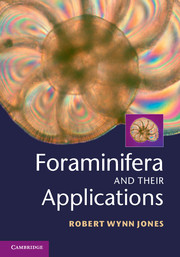Book contents
- Frontmatter
- Dedication
- Contents
- Preface
- Acknowledgements
- 1 Past, present and future foraminiferal research
- 2 Research methods
- 3 Biology, morphology and classification
- 4 Ecology
- 5 Palaeobiology, palaeoecology (or palaeoenvironmental interpretation)
- 6 Palaeobiological or evolutionary history of the Foraminifera
- 7 Biostratigraphy
- 8 Sequence stratigraphy
- 9 Applications and case studies in petroleum geology
- 10 Applications and case studies in mineral geology
- 11 Applications and case studies in engineering geology
- 12 Applications and case studies in environmental science
- 13 Applications and case studies in archaeology
- References
- Index
2 - Research methods
Published online by Cambridge University Press: 05 December 2013
- Frontmatter
- Dedication
- Contents
- Preface
- Acknowledgements
- 1 Past, present and future foraminiferal research
- 2 Research methods
- 3 Biology, morphology and classification
- 4 Ecology
- 5 Palaeobiology, palaeoecology (or palaeoenvironmental interpretation)
- 6 Palaeobiological or evolutionary history of the Foraminifera
- 7 Biostratigraphy
- 8 Sequence stratigraphy
- 9 Applications and case studies in petroleum geology
- 10 Applications and case studies in mineral geology
- 11 Applications and case studies in engineering geology
- 12 Applications and case studies in environmental science
- 13 Applications and case studies in archaeology
- References
- Index
Summary
This chapter deals with research methods. It contains sections on work-flow; on sample acquisition and processing; on analytical data acquisition; on interpretation; and on integration. The section on sample acquisition and processing includes separate sub-sections on sample acquisition and on sample processing.
Work-flow
A generic work-flow for applied (micro)palaeontology is shown in Fig. 2.1. It will be seen that the key constituent elements are sample acquisition and processing (also analysis), analytical data acquisition, interpretation and integration. Each of these is discussed in turn below.
Sample acquisition and processing
Sample acquisition
Field acquisition of samples of live Foraminifera
The acquisition of samples of live Foraminifera, for laboratory culture and/or analysis, including sea-bed samples for benthics and sea-surface samples for planktics, is discussed by, among others, Murray (1973), Haynes (1981), Green (2001), Schonfeld (2012) and Schonfeld et al. (2012) (see also the Scientific Committee on Oceanic Research (SCOR) website). The best sea-bed samples for benthics are those acquired through the use of multiple or box corers, which preserve the sediment–water interface.
Information
- Type
- Chapter
- Information
- Foraminifera and their Applications , pp. 8 - 12Publisher: Cambridge University PressPrint publication year: 2013
